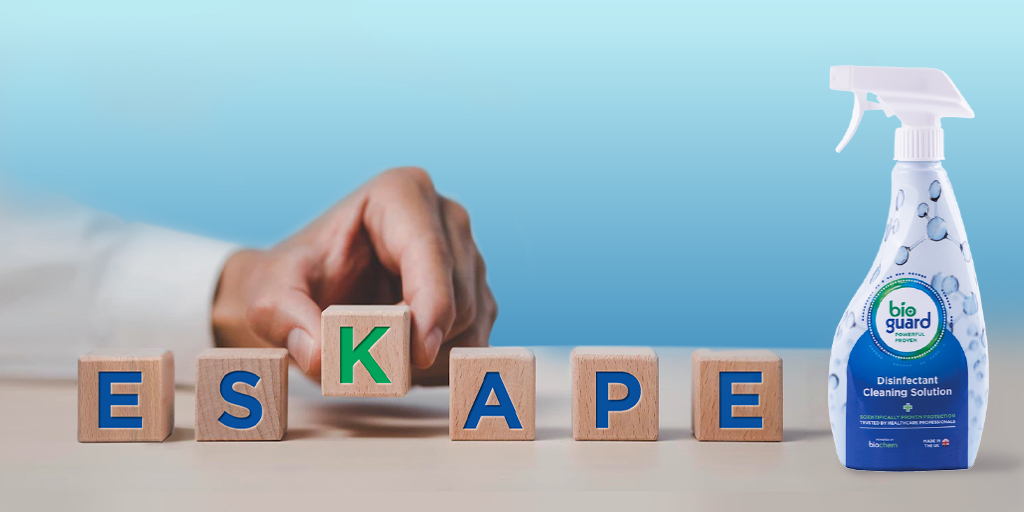
The Biggest Infection Threat- A Farm Or A Hospital?
According to a new research reported in Nature Microbiology, from a microbial standpoint, the hospital is more threatening than a farm. Researchers tracked a deadly germ called Klebsiella that could rival MRSA and determined that although the pathogen can be detected in pets, livestock and the environment, humans aren't usually infected this way. Instead, the bug is a big problem for patients in hospitals. [1]
Healthcare centres harbour various pathogens, where diseases can spread from person-to-person or via contaminated surfaces and medical equipment.
However, Klebsiella - Gram - negative bacteria, are increasingly being recognised in the UK as a bigger problem than MRSA (Methicillin-resistance Staphylococcus aureus). The WHO (The World Health Organisation) has also declared them as a major threat for hospitals.[2] The most known member of this family is Klebsiella pneumoniae, pathogen responsible for pneumonia, meningitis and infections of the urinary tract or bloodstream.
Patients in healthcare settings are susceptible to Klebsiella infections because they are immunocompromised. The repercussions of an infection by the pathogen is not limited to health. Researchers have reported that AMR resistant Klebsiella has financial implications, resulting in extremely high healthcare costs due to more hospital admissions, prolonged hospital stays and the requirement of more intensive care units, isolation beds and expensive therapy. [3] [4] The cost for being admitted in the intensive care unit can reach upto INR 2,23,155.81 [5] The UICC (Union for International Cancer Control) reported that AMR’s worldwide can result in an overall cost of $100 trillion to the global economy by 2050.[6]
Why Klebsiella is deadly
Klebsiella is the ‘K’ in the ESKAPE group of pathogens, a dangerous bunch of organisms in terms of infection transmission, severity and ability to control in healthcare settings.
In hospital settings, the bacteria can be transmitted from one person to another via contaminated hands or contaminated surfaces particularly high touch medical equipment.
Patients may come in contact with the pathogen when they are on ventilators, use intravenous catheters or have wounds. Infections induced by Klebsiella are characterised by symptoms overlapping with those of other diseases, making early diagnosis difficult.
Moreover, their ability to develop antimicrobial resistance elevates the concern associated with the pathogen.
Klebsiella are resistant to common antibiotics and some can also resist antibiotics like carbapens, which are administered when other antibiotics fail to work. The increasing resistance and emergence of multidrug resistant strains among Klebsiella spp. is alarming. An outbreak of an AMR-resistant strain of Klebsiella pneumoniae was reported in a Peruvian hospital.[7]
How the pathogen can be controlled
In hospitals, Klebsiella infection is mainly transmitted by cross contamination, where people act as germ vehicles spreading the pathogen to other individuals, surfaces and high touch medical equipment. The pathogen can be controlled with strict hygiene practices. It is crucial to implement total decontamination with a product that is effective against Klebsiella. Choose a disinfectant that is safe for application on all contact surfaces and equipment, thereby enabling decontamination of hospital environments.
Reduce Klebsiella infections the Bioguard way
Bioguard products are tested as per the latest EN13727 testing standard which is the golden standard for UK & European medical testing.
Our disinfectants have been proven effective against ESKAPE group of pathogens, which includes Klebsiella. They are fast-acting and have broad-spectrum, enabling destruction of various germs within 30 seconds or less. Additionally, Bioguard products have a competitive advantage since they have been tested in dirty conditions to reflect real lifer use and offer a practical application for controlling infectious agents.
Succeed in your efforts to reduce incidents of Klebsiella infection; opt for Bioguard disinfectants:
- Trusted by hospitals – Regularly used by healthcare professionals in over 25,000 sites across the UK, Europe and GCC in high-risk environments. Bioguard products are now protecting India.
- High efficacy against ESKAPE – Broad-Spectrum Microbiological Efficacy means our products are effective against a wide variety of organisms, including ESKAPE group of pathogens.
- Efficient to control AMR pathogens – Combined cleaning and disinfection capability eliminates the need for multiple products, we can rationalise your decontamination requirements, thereby saving inventory and reducing cleaning complexity levels, improving hygiene compliance and reducing the risk of AMR
- Safe for Multiple high-touch Surfaces – Applicable on virtually all surfaces (including fabrics and furnishings), so you can decontaminate the whole environment without causing degradation to surfaces, improving hygiene compliance and reducing the risk of AMR.
- Properties that make them environmentally safe – Our products are alcohol-free, pH neutral and eco-friendly. They are safe to be used in the environment and do not cause any irritation or reactions when in direct contact with skin.


